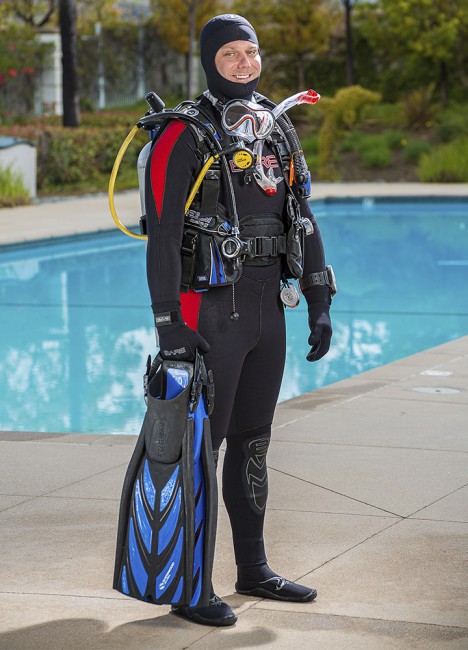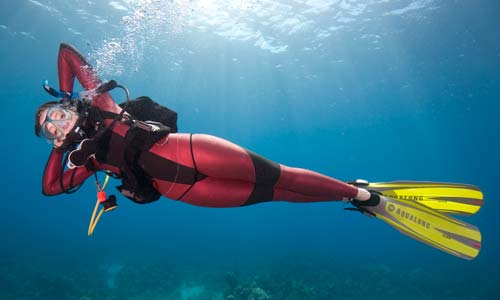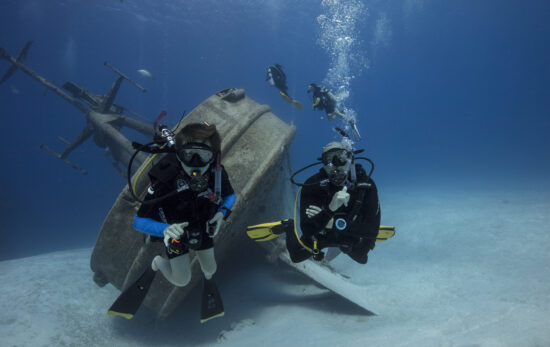As a new diver there are plenty of unknowns. Everything is new and exciting, which can lead some divers to make some rookie mistakes. Set yourself on the path to a fun and relaxing scuba career by avoiding these common missteps.
5. Rushing
Don’t push yourself to keep up with experienced divers. Take your time assembling your gear and remember do each step in the buddy check before each dive. Once in the water, descend slowly and equalize every few feet. When you get down, make sure your buoyancy is dialed in.
A good diver is a relaxed diver. Diving outside of your limits/experience trying to keep up with more experienced divers is how accidents happen, so stay slow and controlled.
4. Not investing in personal gear

Your own gear will fit well and be familiar to you. There’s a lot to be said for intuitively knowing where everything is, especially if the unexpected happens.
Think about when you borrow a car versus driving your own vehicle.
Not sure what gear to invest in first? Check out what PADI Divers say is the most valuable piece of scuba equipment.
Once you have your gear, maintain it well and it can last for years. The Equipment Specialist course is a great way to learn basic care and maintenance.
3. Holding back when you have questions
Every diver was a beginner at some point and we learn by asking questions and gaining experience. There is no shame in requesting clarification or looking for guidance. In a lot of cases, you’re not the only person who needs more info; others may be embarrassed to speak up! With that in mind, here are some of the most common questions (with answers!) about scuba diving.
2. Doing too many things at once
It takes time to get familiar with being in an underwater environment: buoyancy, monitoring your air, and being aware of your position relative to the reef and other divers. As a new diver, it’s important to get some dive experience under your belt before adding extra activities like shooting photos or video. Trying to do too many new things at once can task load your brain.
If you’re interested in gaining more experience under the guidance of a PADI Instructor, the PADI Advanced Open Water course is a great way to try different types of diving (including underwater photography/videography) with an experience dive professional at your side. Don’t let the name fool you, you won’t be asked to do some crazy intense activities. Think of it more as a specialty sampler course; the video below will tell you more about what the program entails.
1. Delaying a dive after certification
The biggest mistake a new diver can make is to lose touch with their new skills.
- If possible, plan a dive as soon as possible following your open water certification
- Join a local dive club
- Dive more than just once a year on holiday
Your PADI certification is good for life, but as with any skill – if you don’t use it, you lose it. If you won’t be able to dive for awhile, review the PADI materials you received with your course to keep important dive procedures top of mind.
If a significant amount of time passes between dive adventures, consider the PADI ReActivate™ program. Quickly refresh your scuba skills and knowledge online or by using an iPad or Android tablet and visit your local dive center for in water skill review sessions. You’ll also receive a new PADI card showing your dive skills have been refreshed.
And don’t forget to keep active! Get something on the calendar by planning your next scuba trip with PADI Travel.


